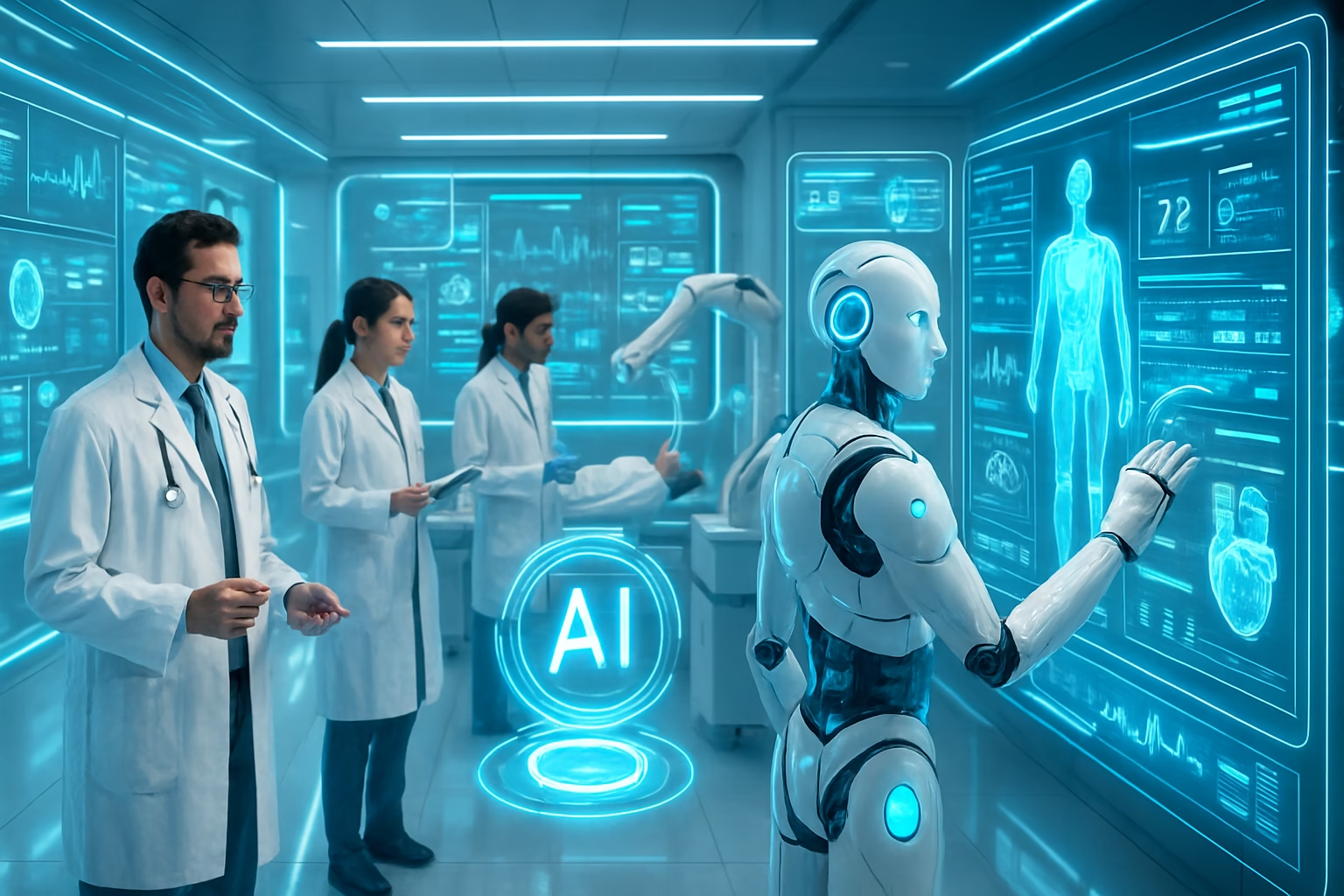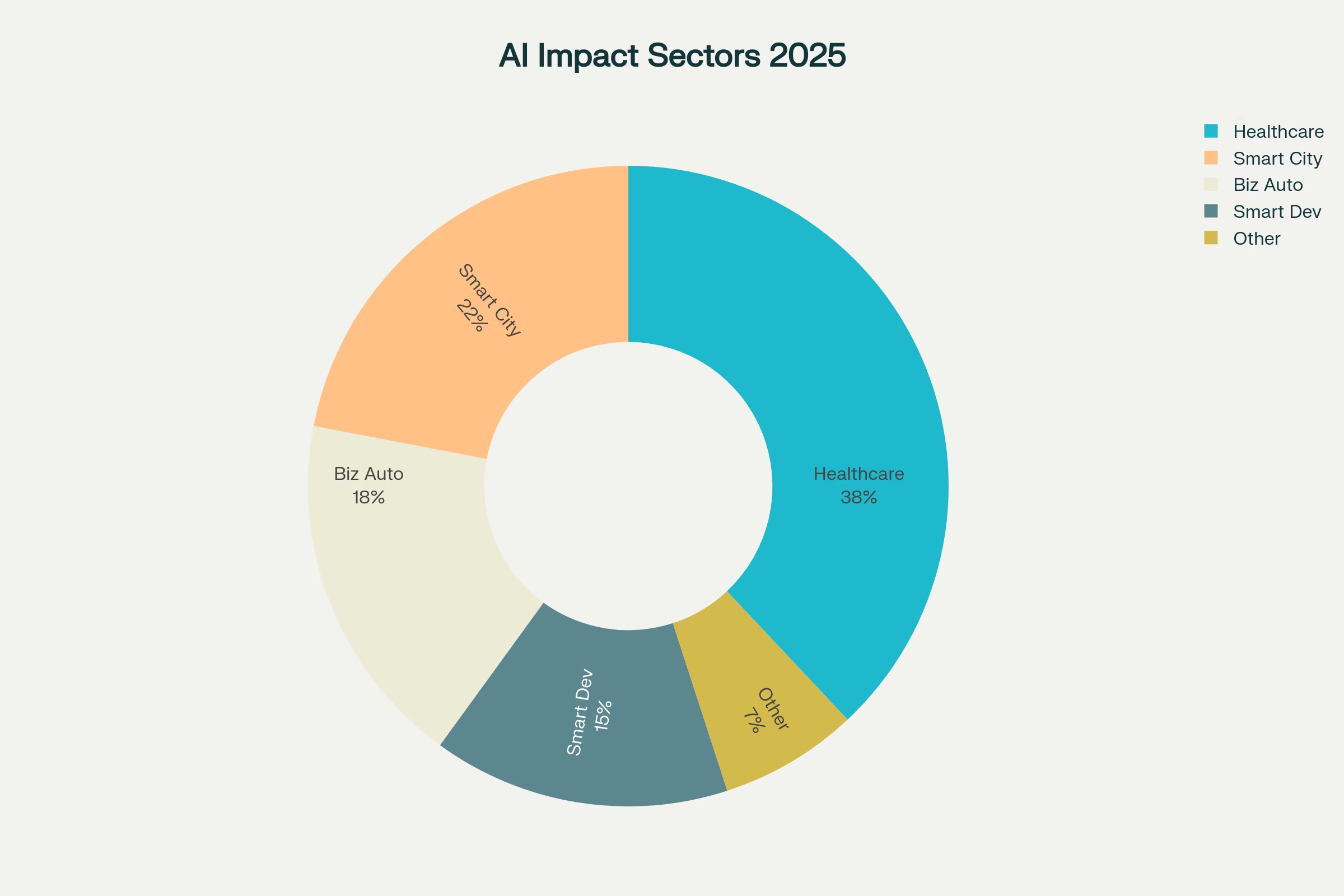Table of Contents
Introduction: The Healthcare AI Tools Revolution
The year 2025 marks a pivotal era for healthcare transformation powered by artificial intelligence (AI). From advanced diagnostic engines to seamless automation, AI tools are redefining medical applications and enhancing patient outcomes. With innovations in healthcare automation, patient care technology, and AI diagnostics, hospitals and clinics are adopting smarter strategies to deliver efficient, personalized, and predictive services. In this comprehensive guide, we explore the top 10 healthcare AI tools making waves this year and analyze how each is shaping the future of medical AI applications.
Top 10 Healthcare AI Tools Transforming Patient Care in 2025
1. DeepMind Health
As a leader in AI diagnostics, DeepMind’s algorithms help clinicians detect diseases like diabetic retinopathy and breast cancer at incredibly high accuracy rates. Its real-time data analysis also streamlines patient care technology, bolstering early detection and decision-making.
2. IBM Watson Health
Watson Health employs medical AI applications to evaluate complex data, assist in clinical diagnosis, and personalize treatment plans. Its natural language processing enables swift triage, while cognitive automation improves the efficiency of medical workflows.
3. Tempus AI
Tempus accelerates precision medicine through AI-powered genomic sequencing and data analytics. By harnessing patient DNA variations, Tempus aids oncologists in identifying targeted therapies and customizing treatments for improved patient outcomes.
4. PathAI
Focusing on pathology, PathAI’s machine learning software analyzes tissue samples to reduce human error and enhance diagnostic accuracy. Its healthcare AI tools enable faster laboratory results and better integration with patient care technology.
5. Aidoc
Aidoc revolutionizes radiology with deep learning algorithms that quickly interpret medical images, diagnose emergencies such as brain hemorrhages, and alert doctors for rapid intervention. It stands as a prime example of healthcare automation for life-saving insights.
6. Olive AI
Olive AI tackles hospital operations bottlenecks with robotic process automation (RPA) for administrative and financial tasks, optimizing patient flow and freeing clinicians to focus more on direct patient care.
7. Butterfly Network
Leveraging handheld AI-driven ultrasound devices, Butterfly Network brings affordable and portable imaging to clinicians worldwide. Its real-time analysis tools enhance medical AI applications in remote and resource-limited settings.
8. Somatom X.cite (Siemens Healthineers)
Somatom X.cite employs intelligent imaging systems for personalized scanning and automated protocol selection, directly improving diagnostic speed and reliability. Its adaptive AI underpins modern patient care technology.
9. Nuance DAX (Dragon Ambient eXperience)
AI-powered clinical documentation by Nuance transcribes and structures patient conversations in real time, minimizing paperwork and maximizing care quality. This speech-to-text technology is a game-changer in healthcare automation.
10. Viz.ai
Viz.ai combines real-time notification and triage with advanced image interpretation for stroke and cardiac emergencies. The tool’s predictive algorithms accelerate patient routing to specialist care, enhancing critical outcomes.
Key Benefits of Healthcare AI Tools in 2025
- Improved Diagnostic Accuracy: AI-driven analysis significantly reduces diagnostic errors and supports clinicians with actionable insights.
- Personalized Patient Care: Medical AI applications tailor treatments and therapies based on individual patient data, improving results and satisfaction.
- Enhanced Operational Efficiency: Healthcare automation streamlines administrative tasks, resource allocation, and reduces overhead.
- Predictive Analytics: Patient care technology utilizes historical data to forecast health risks and enable early intervention.
- Greater Accessibility: AI-powered remote monitoring and smart devices ensure quality healthcare reaches underserved populations.
Conclusion
The healthcare industry is entering a transformative era in 2025, driven by cutting-edge AI tools and medical innovations. These top 10 healthcare AI solutions are not only enhancing diagnostic precision and automating routine tasks—they are fundamentally reshaping patient care technology and medical workflows. By leveraging the power of healthcare AI tools, medical facilities can provide more personalized treatments, make faster data-driven decisions, and unlock predictive healthcare capabilities that save lives.
As AI diagnostics and healthcare automation continue to advance, both patients and providers will benefit from greater efficiency, reduced costs, and improved health outcomes. Adopting these breakthrough technologies is no longer optional—it’s essential for staying ahead in the rapidly evolving landscape of modern medicine. The future of patient care is smarter, faster, and more accessible, thanks to the relentless progress of healthcare AI.
- Unleashing the Future: Top 10 Healthcare AI Tools Revolutionizing Patient Care in 2025
- Ultimate Guide to Sustainable Travel Tips and Eco Friendly Travel 2025: Embrace Conscious Travel Trends & Green Travel Destinations
- Ultimate AI Revolution Uncovered: How Artificial Intelligence is Impacting Daily Life Globally in 2025
- Ultimate Digital Nomad Destinations 2025: Discover Where the World’s Best Remote Workers Are Heading Next
- The Future of Remote Work 2025 Trends Shaping How We Work


